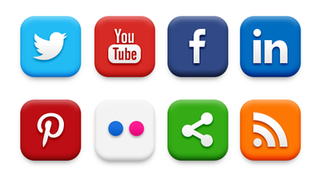
I think we have all felt frustration with our social media use, which for many is now going on for one and a half decades. The ease with which you can share status updates, photos, videos, or just emoticons to capture temporal mood states has only become easier as these platforms have evolved. The arrival of social media has resulted in a profound paradigm change for how we are informed and how we look to express ourselves. Ignoring the larger implications of data ownership, electorate manipulation, and the censoring of hate and misinformation, I am going to reflect on the individual user and the intentions behind posting.
Civil discourse appears to be a rare occurrence on social media platforms. This is just an observation from my own use, and from reading numerous conflicts on mainstream media outlets. I think for many people, it was hoped that exchanges and comments on political and ideological issues would proceed from a civilized, democratic foundation: I share my view, you share your view, we consider the opposing viewpoints, and then allow ourselves to be open to persuasive counterpoints if argued well. If I had to guess, I don’t think this is most people’s experience.
Typically, we see more visceral reactions that end up being an affront to basic etiquette. Even polite attacks on a person’s worldview are often met with the person doubling down on their own view, and civil discourse is abandoned.
I think, in part, this can be explained by the motivations behind the post.
When we share something online, we are typically expecting some sort of validation, otherwise, why post? We want friends and family to like and comment on our photos, videos, jokes, and memes. These things we post are associated strongly with our sense of self, our sense of who we are as human beings, and we want this to be recognized by the outside world. Parenting books often pick up on this, as it should be the need of a loving parent to recognize the identity that the child is projecting out into the world. The recognition of this identity is crucial for the health and wellbeing of the child.
It’s clearly also important for adults.
Expressions of beliefs, sometimes as memes, are also a key part of a person’s identity. By sharing these, the person is often not saying, “Would someone like to offer a reasoned counterargument to rebut these core concepts of my beliefs?” They are saying, “This is me. Who is with me? Who agrees with me?”
The content of the belief was never up for discussion. It was only shared to be validated. From this foundation, any response that challenges the belief might well be ignored or met with derision. Self-expression is not up for debate.
Social media can be used adeptly to massage a person’s ego, but it cannot be used to challenge a person to think differently.
The obvious conclusion here is that people do not want their social media usage to force them to reassess how they see the world. And of course, why would they? This is kind of reflection is at a minimum, time-consuming and hard work, and at a maximum, painful and disorienting. You could even throw the question out there, “Do people, in general, want to have their beliefs and worldview challenged?” Probably not—it’s much easier to bathe in the company of like-minded individuals.
People are also particular about who they will allow to influence them. Social media users typically end up "friending" most people they know, including family and friends many times removed. Does an uncle want his nephew telling him how to think? Do you want to be influenced by somebody you stopped talking to after elementary school? A permissible and welcoming environment to be challenged just simply isn’t there. The language and rules for debate are also skills to be learned, and most people simply do not have them or aren’t willing to acknowledge them in front of an audience made up of everyone they know.
As the giant social experiment that these platforms remain today, it’s probably a good idea to acknowledge their limitations. It’s unlikely you’re going to have a democratic experience discussing beliefs and worldviews. And every post and meme carries a piece of the person who shared it (think Horcrux). So be careful what you do with it.


